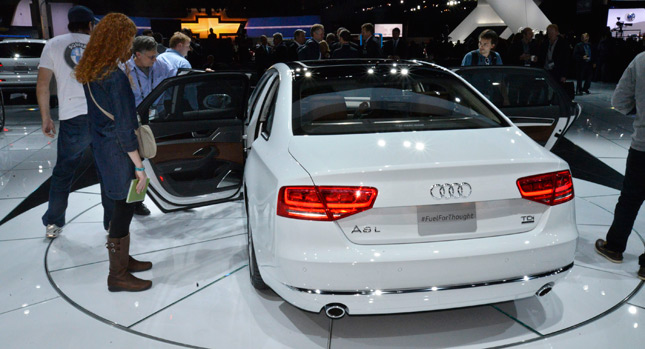In contrast to Europe, where they account for more than half of new cars sold, diesel-powered models hadn’t really caught on with U.S. new car buyers. In the past two years, though, numbers show that more and more Americans recognize the benefits of the new generation of “clean” diesel engines.
That is, the advances in diesel technology have resulted in today’s diesels being nothing like their crude forebears of the ‘80s, while they are also up to 40 percent more fuel efficient that comparable gasoline-powered versions.
According to data from HybridCars.com and Baum and Associates, sales of diesel-powered cars in the States increased by 25.6 percent in 2012, almost double the total market’s 13.8 percent increase rate.
Diesels have posted a double-digit growth in every single month compared to 2011, with September posting an impressive 44 percent jump.
When it comes down to numbers, the 103,822 diesel cars sold are still a blip in the nearly 12 million (11,949,690) overall new car sales and don’t even come close to the 355,806 hybrid units sold this year.
As Allen Schaeffer, the executive director of the Diesel Technology Forum points out, though, the issue is the consistency in diesel sales increase.
“Diesel sales have increased in 26 of the past 26 months”, said Schaeffer, “with 23 of these months showing double-digit increases. Impressively, there have been 20 percent or better increases in 20 of the past 27 months.”
Schaeffer adds the Energy Information Association estimates that next year, the price of diesel fuel will decrease by nearly 3 percent, to US$3.83/gallon. This, he believes, is something that will further boost diesel sales as the price gap with gasoline will close.
“When comparing diesel to premium gasoline, the cost differential today is just 17 cents a gallon. With diesel fuel and gasoline prices tracking more closely, consumers choosing diesel will see a faster payback for investing in a clean diesel car, given the proven fuel efficiency and higher resale value – two of the key factors of the total cost of ownership”, he stated.
Apart from fuel prices, it helps that carmakers are not hesitating to introduce diesel variants of their models to North America.
At the recent LA Auto Show, for example, Audi announced that the 3.0-liter V6 turbodiesel already on sale in the A3 and Q7 will also be available, from next year, in four more of its models, namely in the A6, A7, A8 and Q5, while other manufacturers, like BMW, Mercedes-Benz, GM and Ford, plan to increase their diesel offerings in the U.S. in the next couple of years.
By Andrew Tsaousis




